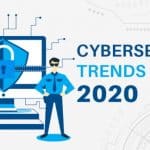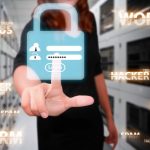Securing the remote workforce during COVID-19 and beyond [Q&A]

The COVID-19 global pandemic has created a cybercrime playground. From phishing scams to ransomware to social media attacks, COVID-19-focused malware campaigns are on the rise. In fact, according to research from Zscaler, there's been a 30,000 percent increase in coronavirus-related attacks.
We talked with Mike Kelley, CSO at Navisite, to discuss why the current crisis is causing such a dramatic spike in cybersecurity activity, as well as ways organizations can secure their remote workforce and protect their organization from cyberthreats both now and after the COVID-19 pandemic comes to an end.
Massive amounts of corporate data now stored on employee USB devices

There has been a 123 percent increase in the volume of data downloaded to USB devices by employees since working from home has become widespread due to coronavirus.
What's more, according to a report from SaaS data protection company Digital Guardian, 74 percent of that data is subject to organisation data governance policies.
Updated platform offers zero-trust management of multi-clouds

Multi-cloud environments tend to be harder to secure because teams and applications are much more distributed resulting in a larger attack surface.
A zero-trust approach deals with these threats but can introduce overheads that make it hard to manage. Morpheus Data is integrating VMware NSX-T and Unisys Stealth technology into its cloud automation framework to enable microsegmentation and dramatically simplify the implementation of zero-trust processes.
Turn off the security please, I'm the boss

The C-suite is the most likely group within an organization to ask for relaxed mobile security protocols (74 percent) -- despite also being highly targeted by cyberattacks according to a new study.
The report from zero-trust platform MobileIron finds that executives feel frustrated by mobile security protocols and often request to bypass them.
Three-quarters of organizations fail to complete legacy system modernizations

New research from Advanced shows that 74 percent of organizations have started a legacy system modernization project but failed to complete it.
The report also suggests a disconnect between business and technical teams could be to blame. CIOs and heads of IT are more interested in the technology landscape of their organisation as a whole, whereas enterprise architects are more internally focused.
Safe working practices suffer when working remotely

Almost half of employees are less likely to follow safe data practices when working from home according to a new report from email security firm Tessian.
While 91 percent of IT leaders trust their staff to follow best security practices when working remotely, over half of employees (52 percent) believe they can get away with riskier behavior when working from home.
Organizations want to continue remote work but aren't equipped for secure access

The current crisis has led to a big increase in numbers of people working remotely. Many businesses seem set to continue that when normality returns, but a new report suggests they're not equipped to do so securely.
The study from cloud security company Bitglass shows that 41 percent have not taken any steps to expand secure access for the remote workforce, and 50 percent are citing proper equipment as the biggest impediment to doing so. Consequently, 65 percent of organizations now enable personal devices to access managed applications.
DNS traffic and DDoS events rise during pandemic

New research from DNS intelligence specialist Farsight Security, focusing on over 300 leading websites, finds that between March and April there has been an increase in DDoS events involving popular brand names.
It also reveals that DNS cache misses (which occur when the data fetched is not present in the cache) showed an increase of between four and seven times.
How to move beyond the burden of legacy systems [Q&A]

These days, companies are seeking to stay competitive and current by pursuing and succeeding at end-to-end digital transformation.
Successful digital transformation brings a myriad of benefits to organizations of all types, including operational efficiencies, improved customer engagement and digitally-enabled sales and service. However, organizations can't fully embrace and reap the benefits of digital transformation if they're still relying on their old legacy environment.
Android handsets found to have region-specific security issues

Android is the most popular smartphone OS, but new research suggests that its security landscape is fragmented due to region-specific issues that affect users in some countries but not others.
Researchers at F-Secure examined devices including the Huawei Mate 9 Pro, the Samsung Galaxy S9, and the Xiaomi Mi 9 to understand the exploitation process for vulnerabilities and configuration issues, as well as the impact, and found it varies from device to device.
The effect of GDPR two years on

Today marks the second anniversary of the introduction of the EU's General Data Protection Regulation (GDPR).
With privacy in the spotlight at the moment due to COVID-19 tracing apps, we got the views of some industry experts on the effect that GDPR has had on our individual privacy and on the way businesses handle data.
One-in-50 online transactions was fraudulent in 2019

Two percent of transactions in online banking and online retail were carried out by fraudsters, and 16 percent of transactions were suspicious and required further investigation according to new analysis by Kaspersky.
Based on anonymized statistics of events detected by Kaspersky's anti-fraud solution from January to December 2019, the most common case of fraud (63 percent) was attempts to access personal accounts using malware or legitimate remote control software.
Key cybersecurity trends for 2020

With the current focus being very much on the shift to remote working and the challenges and opportunities it offers, it’s easy to overlook the fact that there's a whole world of other security issues out there, and it isn't standing still.
Ireland-based telecommunications company Paradyn has created an infographic looking at what it sees as the important cybersecurity trends of this year.
Cybersecurity best practices to help protect businesses

Cybercrime can hit any business and the costs of an attack can prove crippling. In order to protect themselves companies need to adopt best practices, but where to start?
Cloud-based customer identity access management (CIAM) platform LoginRadius has created an infographic looking at the risk and what organizations can do to protect themselves.
Free service measures Dark Web information exposure

Suffering a data breach is bad enough, but arguably worse is not knowing how much of your organization's data has been exposed as a result.
Now you can find out thanks to ImmuniWeb launching a free online service to check how bad a company/organisation's exposure is on the Dark Web and hacking resources.
Ian's Bio
Ian spent almost 20 years working with computers before he discovered that writing about them was easier than fixing them. Since then he's written for a number of computer magazines and is a former editor of PC Utilities. Follow him on Mastodon
© 1998-2025 BetaNews, Inc. All Rights Reserved. About Us - Privacy Policy - Cookie Policy - Sitemap.
